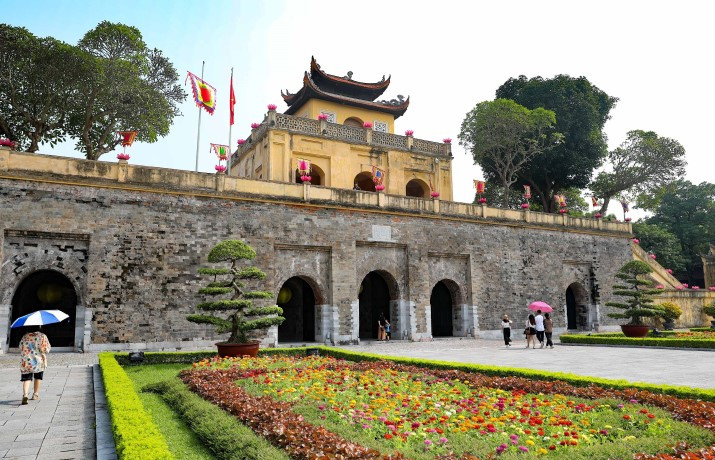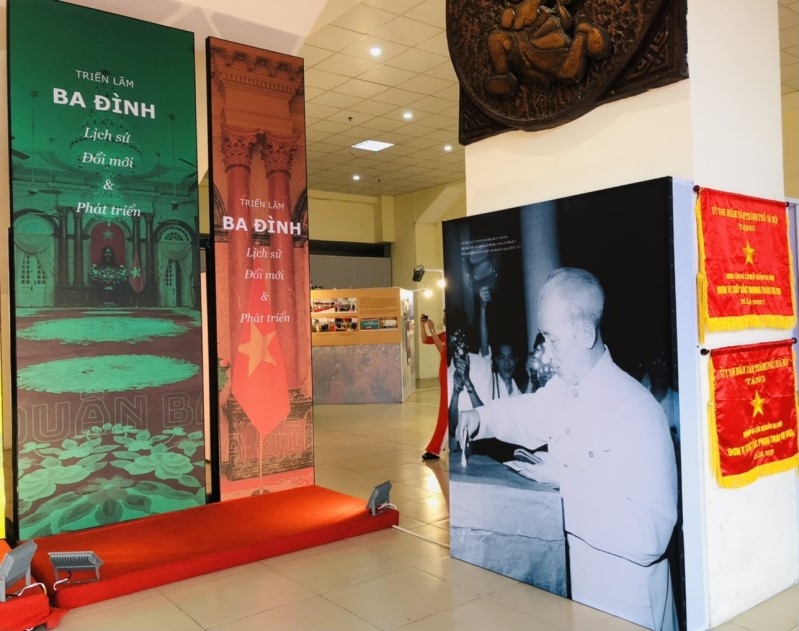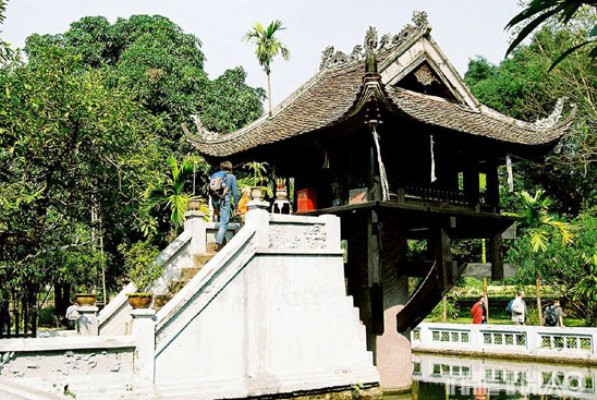Ba Dinh District has always played a prominent role in the political life of Vietnam. No matter how Hanoi has changed its administrative boundaries, Ba Dinh has remained the country's neuralgic political and administrative center. It houses relics of the national resistance wars.
Sacred land of extraordinary people
King Ly Cong Uan moved the capital from Hoa Lu to Dai La in 1010 and renamed it Thang Long. He chose the land of today's Ba Dinh to build the Imperial Citadel where the feudal court and the royal family sat. The land is considered to be the heart of the ancient Thang Long Citadel.
Over 10 centuries have passed, Ba Dinh has remained a sacred land of extraordinary people. It is here that important events of the country take place.
 |
| Thang Long Imperial Citadel is an important historical relic in Ba Dinh District. Photo: The Hanoi Times |
On September 2, 1945, President Ho Chi Minh read the Declaration of Independence at Ba Dinh Square, giving birth to the Democratic Republic of Vietnam. The event ushered Vietnam into the era of national independence combined with socialism.
At present, Ba Dinh District has 14 wards. It's is adjacent to Tay Ho, Hoan Kiem, Dong Da and Cau Giay districts.
National Assembly Chairman Vuong Dinh Hue, when he was secretary of the Hanoi Party Committee, pointed out: "If Hanoi is the face of the whole country, then Ba Dinh is the face of Hanoi."
Ba Dinh District is always striving to perform its assigned tasks with excellence, in order to live up to its pioneering role. Hoang Minh Dung Tien, Secretary of the District Party Committee, said that the district has been striving for stable economic growth by effectively utilizing its potential and transforming the economic structure into a service-oriented one.
 |
| Ba Dinh District is home to relics from the wars of national resistance. Photo: The Hanoi Times |
Cultural diversity
Ba Dinh is a historical area with typical monuments and landscapes of Hanoi. Coming to Ba Dinh, visitors cannot miss special relics namely Mausoleum of President Ho Chi Minh, One Pillar Pagoda, Thang Long Imperial Citadel.
One Pillar Pagoda
 |
| Chua Mot Cot or One Pillar Pagoda is an iconic architecture built in Ly Dynasty (1009-1028). Photo: VNA |
It is a spiritual and cultural symbol of Hanoi, with unique architecture in the shape of a blooming lotus.
Construction of the One Pillar Pagoda began in 1049, during the reign of King Ly Thai Tong (1028-1054). Legend has it that in a dream, the king saw Guanyin sitting on a lotus flower and invited him to sit by her side. When the king awoke, he told the story to the monk Thien Tue, who advised him to build a pagoda of a stone pillar resembling a lotus and dedicate it to Guanyin.
Thang Long Imperial Citadel
Thang Long Citadel is a great architectural work built by successive dynasties of Vietnam and is now the most important relic in the system of Vietnamese monuments.
The site was inscribed on the UNESCO World Heritage List in 2010. By December 2002, experts have excavated on a total area of 19,000m2 in the political center of Ba Dinh.
The Imperial Citadel of Thang Long was unearthed in the largest excavation in Vietnam and Southeast Asia, revealing 13 centuries of cultural layers and stacked relics.
Mausoleum of President Ho Chi Minh
The Presidential Palace, Ho Chi Minh Mausoleum and Ho Chi Minh Museum form the Ba Dinh complex of historical and cultural relics.
Domestic and international visitors come to admire Ho Chi Minh, a hero of national liberation and a cultural icon.
Source: Hanoitimes